Question: I have a question about judging others and fault finding. We are told that it is better for our spiritual lives if we avoid the association of materialistic people, and I can understand how this will be beneficial, as we do get influenced by the people we associate with. But we are also told that we shouldn’t find fault or judge others. Isn’t this a bit of a contradiction? Can you please help me to understand how we can reconcile these two instructions?
Answer:
This is a very good point you are making here. There is a passage in the New Testament in which Lord Jesus Christ sheds light on these ideas:
Do not judge, or you too will be judged. For in the same way you judge others, you will be judged, and with the measure you use, it will be measured to you. Why do you look at the speck of sawdust in your brother’s eye and pay no attention to the plank in your own eye? How can you say to your brother, ‘Let me take the speck out of your eye,’ when all the time there is a plank in your own eye? You hypocrite, first take the plank out of your own eye, and then you will see clearly to remove the speck from your brother’s eye. Do not give dogs what is sacred; do not throw your pearls to pigs. If you do, they may trample them under their feet, and turn and tear you to pieces.
[Matthew 7:1-6]

In these verses from Matthew, Lord Jesus Christ firstly warns about judging others, looking for fault in others, and then immediately says that one should not distribute spiritual information to “dogs and pigs” – in other words, those who are envious and inimical to spiritual wisdom. Some people may imagine that there is a contradiction here – to distinguish between those who are innocent and open to spiritual truths, and the envious persons who are inimical – requires that a judgment be made. However, there is a great difference between judging others out of envy and discriminating between who is ready to receive spiritual help and who is inimical. Or who is good association, and who is not.
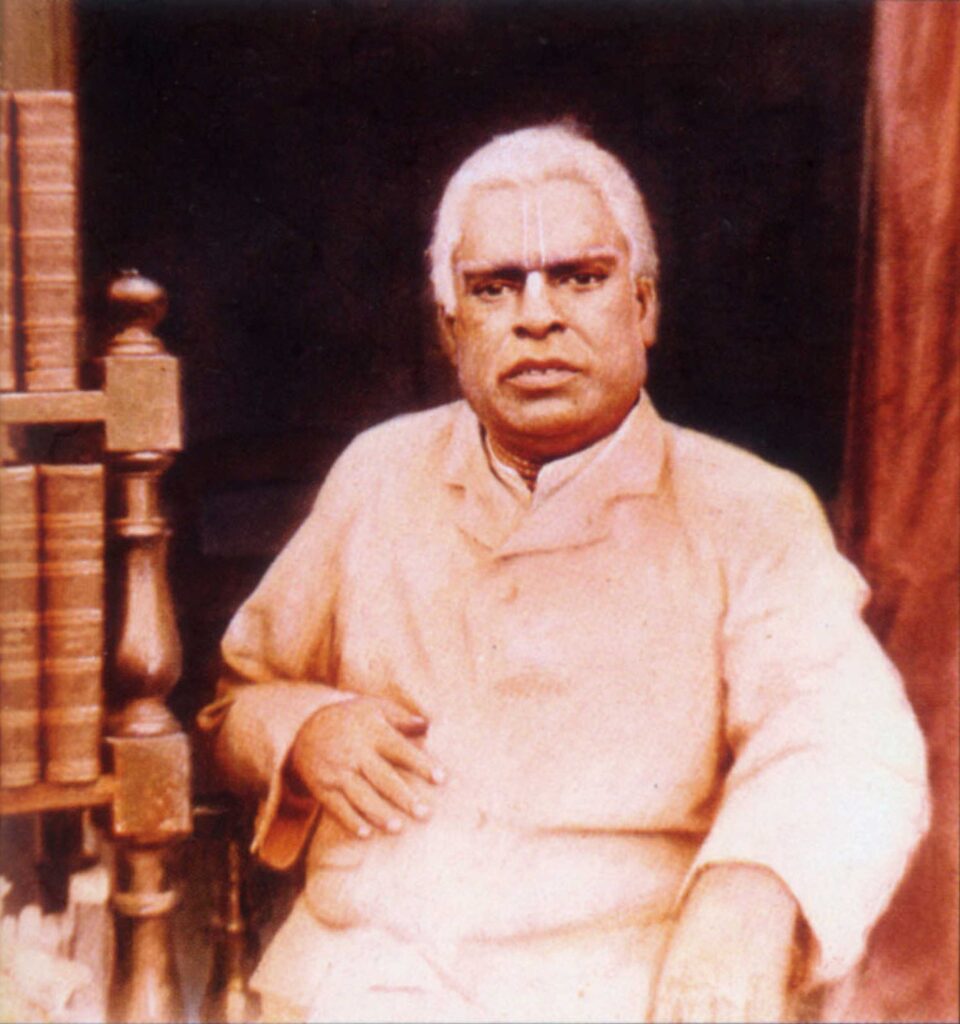
In the 1870’s, Srila Thakur Bhaktivinoda wrote a very wonderful poem entitled Sharagrahi Vaishnava (“Surrender Vaishnava”) which illustrates the futility of trying to find happiness in material pursuits. The poem describes the eternal nature of the soul, and champions the struggle of the soul to overcome various obstacles in order to achieve pure devotional service to God. The first two verses of this poem are:
Alas for those who spend their days
In festive mirth and joy!
The dazzling deadly liquid forms
Their hearts for e’er employ!
The shining bottles charm their eyes
And draw their heart’s embrace!
A slave of wine can never rise
From what we call disgrace!
Srila Bhaktivinoda Thakur is a great saintly spiritual teacher, and his motivation for speaking here, as always, is based on love and compassion. He is pointing out some of the pitfalls a spiritual aspirant must avoid. But there is no malice or envy towards those souls whose material addictions make it very difficult to engage in spiritual life.

The devotee has to make judgements in regards to who will be good association. But he does not make these judgements based on envy. And he doesn’t need to hang out with the guys in the local pub just to show he is “non-judgemental.” This is a judgement call – he knows this association and getting drunk will be bad for his spiritual life. But he does not look down on these intoxicated revellers. A more advanced devotee is not motivated out of envy or self-righteously feeling better than anyone. Rather, he feels genuine compassion for those whose life choices separate them from God. And he feels unworthy but most fortunate that he has received the mercy of God and His great devotee, and has been able to give up many former bad habits and take to spiritual life.
In trying to help others spiritually we often have to make decisions or judgments about where they are at spiritually, in order to help people to move forward without blowing them away. The difference is whether these judgments are made out of envy or out of compassion and concern for others’ well-being. Also, in order to serve God, a devotee may have to speak out against false philosophies and criticise those who mislead others or offend the Lord.

Jesus chastised the money changers and merchants and threw them out of the Temple, and it is part of the role of spiritual teachers to attack and destroy philosophies that lead people away from Krishna. Srila Bhaktivedanta Swami said that he had “preached with a Bhagavatam in one hand and a pick-axe in the other.” When people’s spiritual well-being is at risk, or when people are being misled by false teachings, a devotee of God does not practice false humility in order to be seen as a “nice guy.”
Everyone has to make judgments about others while living in this world. For example, we don’t let our children go to the park with a known pedophile. Even if we are advanced enough to feel lower than everyone else, we still have to discriminate based on our perception of others’ consciousness and behaviour. A pure devotee has love for all living entities within his heart, but he does not hug tigers and swim with crocodiles. This is practical. King Solomon was famed for his wisdom in judging over the citizens of his kingdom. And Bhaktivinoda Thakur was effective in trying and punishing many rascals as a Court Magistrate, without ever acting out of envy or compromising his humility as a pure devotee of Krishna.
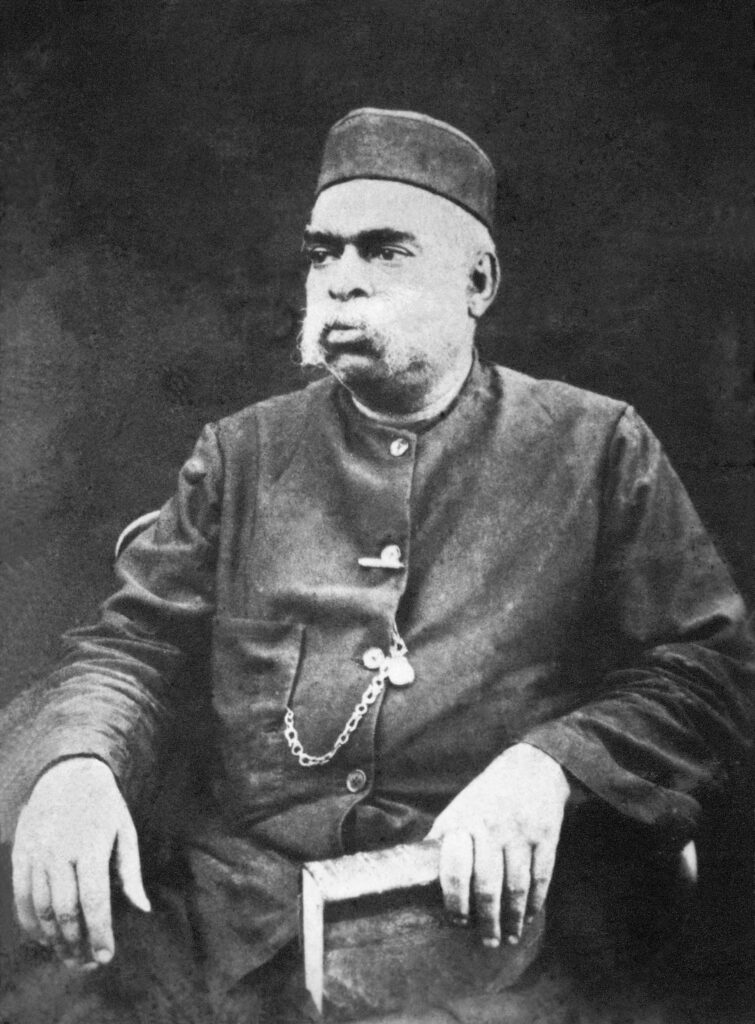
A devotee has to learn to discriminate or make judgements in order to help others. It is actually an offence against the holy names to preach their glories to the faithless, because they will most likely commit offences and fall even further away from God, or “trample them under their feet, and turn and tear you to pieces” as Jesus says. So, it requires some spiritual vision to determine what to say to whom. In Srimad Bhagavatam, the difference between the judgments of the kanistha-adhikari and the madhyam adhikari are clearly described:
The madhyama-adhikari is a devotee who worships the Supreme Personality of Godhead as the highest object of love, makes friends with the Lord’s devotees, is merciful to the ignorant and avoids those who are envious by nature. A person who is very faithfully engaged in the worship of the Deity in the temple, but who does not know how to behave toward devotees or people in general is called a prakrta-bhakta, or kanistha-adhikari.
[Srimad Bhagavatam 11:2:46-47. Quoted in purport to the Nectar of Instruction text 5]

The kanistha-adhikari generally has no idea that God can exist outside his particular church, temple or mosque. Being proud of his own ritualistic worship, he cannot imagine that anyone can be more pious or religious than he is, and he is not aware that other devotees are more advanced than he is. He doesn’t appreciate the madhyam or uttama adhikary, and sometimes, due to envy and false prestige, he criticizes these more advanced devotees of the Lord. Or he neglects them and has no understanding of their exalted position as compassionate preachers or completely self-realized souls.
When dealing with new people he will waste his time debating with the inimical – those who don’t want to learn but simply want to argue. And he will ignore or neglect the sincere or innocent person, or turn him off with his fanaticism. Srila Bhaktivedanta Swami once said that the reason many devotees do not make advancement beyond the kanistha adhikary stage is because of their enviousness and offences against their god-brothers and sisters. Factually, it is possible to remain a kanistha adhikary for many lifetimes for this reason.
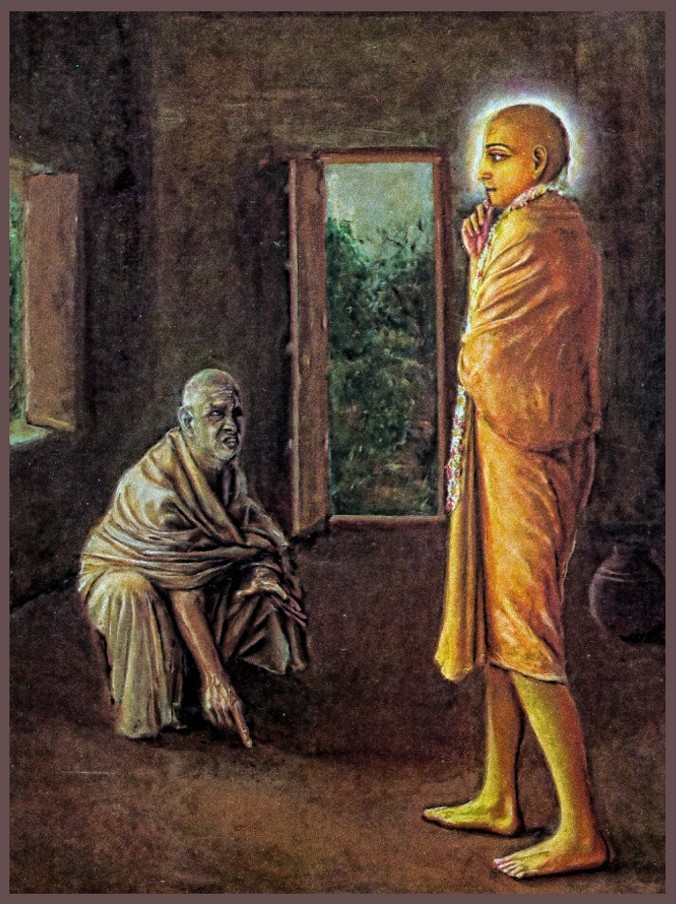
The madhyam adhikary, on the other hand, acts correctly towards others because he has some spiritual vision. The madhyam adhikary doesn’t act out of envy. He avoids the inimical person – he doesn’t throw his pearls before swine. He helps the innocent to advance in their spiritual lives, makes friends with sincere devotees and gives his life to the uttama adhikary. The madhyam-adhikari acts as the extended hand of the uttama-adhikari, working for the benefit of others and helping the uttama-adhikari in his mission to distribute love of Krishna to everyone.
The uttama adhikari is described in text 5 of the Nectar of Instruction:
… the pure devotee who is advanced in undeviated devotional service and whose heart is completely devoid of the propensity to criticize others.
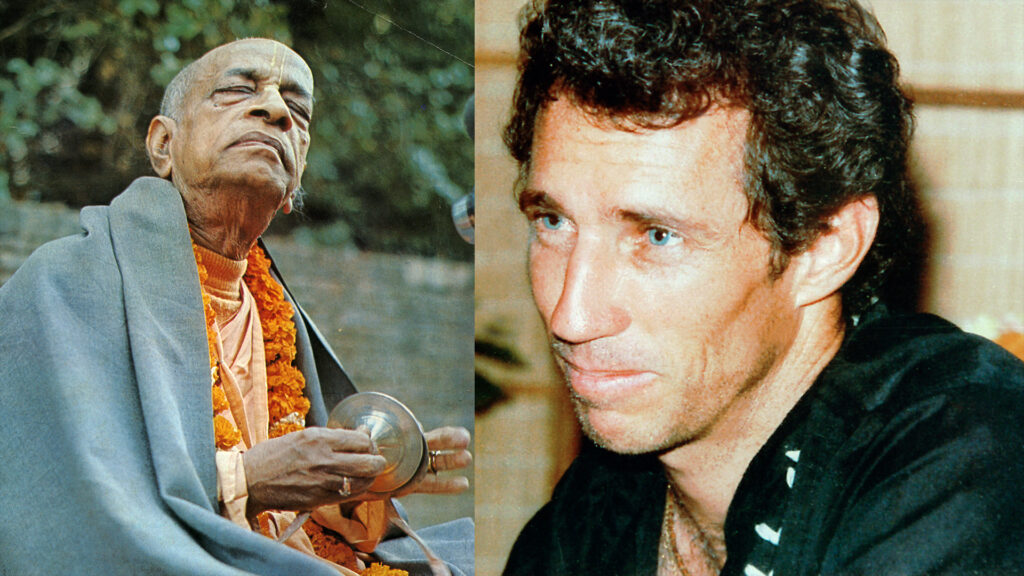
The uttama adhikari is totally free from envy – he has only love for others and is the well-wisher of all living entities. He sacrifices everything for the well-being of those souls who are lost and suffering in the material world. He is an ocean of mercy. To look for fault in any devotee is greatly detrimental to our spiritual lives, and this is most especially true of the mad-elephant offence of criticizing the uttama adhikari, the most exalted of devotees who is most dear and most pleasing to Krishna. But we should be tolerant and not envious of any living entity, treating everyone with kindness, because all are Krishna’s dear servants, even if they have forgotten their true identity.
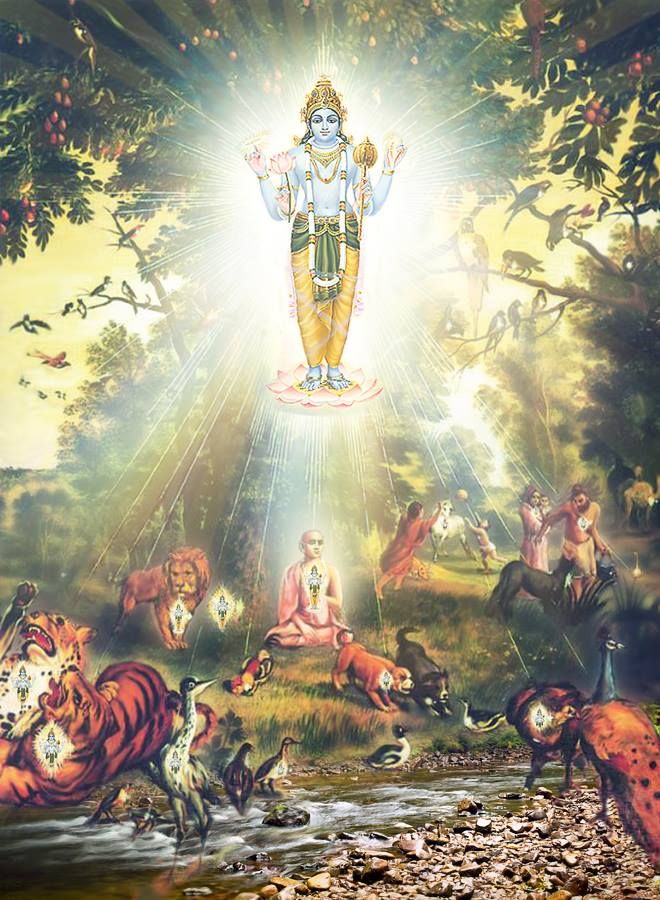
My dear sons, you should not envy any living entity — be he moving or non-moving. Knowing that I am situated in them, you should offer respect to all of them at every moment. In this way, you offer respect to Me.
[Srimad Bhagavatam 5:5:26]
One who is not envious but who is a kind friend to all living entities, who does not think himself a proprietor, who is free from false ego and equal both in happiness and distress, who is always satisfied and engaged in devotional service with determination and whose mind and intelligence are in agreement to me – he is very dear to Me.
[Bhagavad-gita 12:13-14]
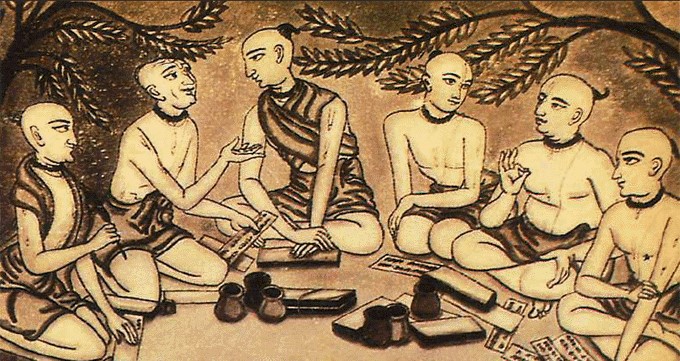
In his “Prayers to the Six Goswamis,” Srinivas Acharya glorified the consciousness of the Goswamis, stating:
They are just like the ocean of love of God, and they are popular both with the gentle and with the ruffians, because they are not envious of anyone.
So, it is a fact that those who are most perfect are the least likely to look for the imperfections of others. There’s a saying in spiritual life:
If I spend all my time looking at the weeds in my neighbour’s garden, my own garden will become overcome with weeds.

In other words, it’s not my responsibility to worry about everybody else’s faults and shortcomings. It is my responsibility to worry about my own.Especially in the early stages of our spiritual lives, it is quite common for a person to develop a stereotypical concept of what a devotee is, perhaps from things we’ve heard and read, or by observing other devotees. If we have not developed some spiritual vision to understand the hearts of others, then it is very easy and a great trap to judge other devotees solely by their external behaviour, dress or external activities.
For example, for the first couple of years of my spiritual life I lived in a temple. I came across some people who seemed – at least externally – to be following every rule and regulation perfectly – rising early, performing all the rituals, practicing many austerities. They were considered to be very “staunch” by their associates, but some were very envious and critical of the actual pure lover of Krishna. And anyone who failed to wear what they considered to be the garb of a devotee, was looked down upon – regardless of their consciousness or the condition of their heart. I was also influenced by this consciousness, until I was rescued by my siksa guru. This was an example of blind fanaticism, and we have to watch out for the same prejudiced thinking within our own mind and heart.

Everyone is a unique individual with their own way of doing things, and we should never judge other devotees according to how long they sleep or how early they rise, how well we consider they perform their sadhana bhakti, what their activities are or because their personality does not jive with our own. For example, someone may be working very hard to make money, and may struggle to find a lot of time for his sadhana bhakti. We should not assume that this person is simply a materialistic businessman. Their work may be a great austerity performed to make money to be utilised in the service of Krishna. If we cannot see a person’s inner motivation, then we run the risk of judging or offending a sincere devotee.
So, it is best to be tolerant and respectful to everyone, especially if they are chanting the names of Krishna. Of course, if they are smoking dope and getting drunk then we should not think this is okay and join them out of extreme tolerance. But we can encourage such a person to chant while avoiding close association with them outside of situations where we are hearing and chanting or trying to help them in some way. It will definitely hinder our own spiritual advancement if we are envious of anyone, let alone someone who is chanting Krishna’s names. We cannot possibly be pleasing to Krishna if we are envious of those who are most dear to him, and Lord Jesus Christ, in his first and second commandments, made it very clear that we cannot separate love of God from love of God’s children. The two go hand-in-hand.

When I was young we would sometimes play a board game called Snakes and Ladders. And the older versions of the game had people going up ladders by landing on good moral qualities such as self-denial, love, truthfulness, forgiveness, kindness, mercy etc. And when we landed on avarice, pride, selfishness, slander, cruelty, depravity, covetousness, vanity, dishonesty, enviousness and anger, we went down via a snake. There are some valuable lessons in the symbolism of this game.
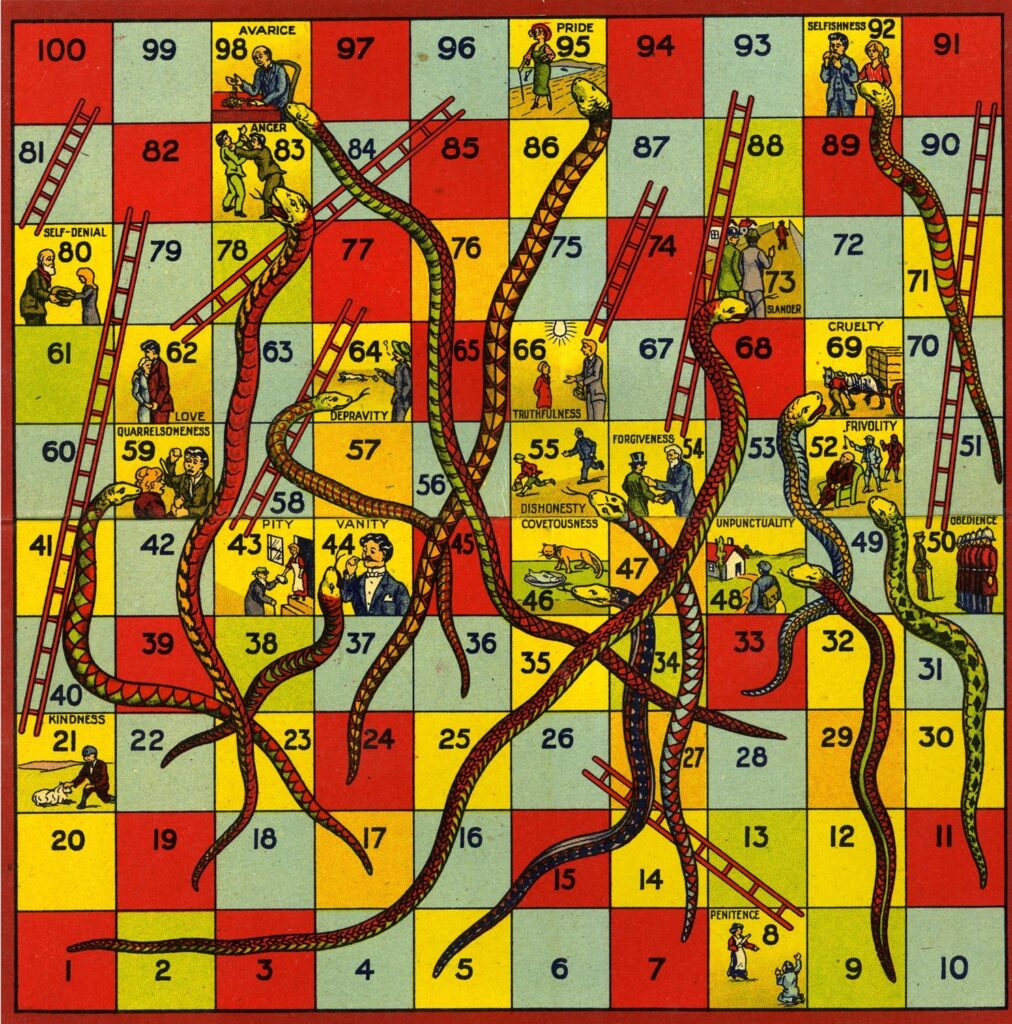
Once one of Srila Bhaktivedanta Swami’s disciples criticised a god-brother, saying he “was in maya.” Srila Bhaktivedanta Swami’s reply was:
When someone is lined up to go to the bathroom, what is the value in telling them they’re dirty.
We are all in maya to one degree or another until we are loving Krishna. If we are engaging in sadhana bhakti, then we are endeavouring to rectify this problem by cleansing our heart and mind.
The Brahmana and the Prostitute
At another time Srila Bhaktivedanta Swami visited one of his temples where there was a lot of in-fighting and criticism going on between two rival factions. He told an old Indian story about a brahmana priest and a prostitute who lived opposite each other on the same street. On the same day, the brahmana priest and the prostitute both died. The messengers of Lord Vishnu arrived on the scene, and they approached the prostitute to take her to the spiritual world, ignoring the brahmana. The brahmana became indignant and said, “What are you doing? There must be some mistake. I am a pure brahmana and she is just a low, sinful prostitute. You should be taking me.”
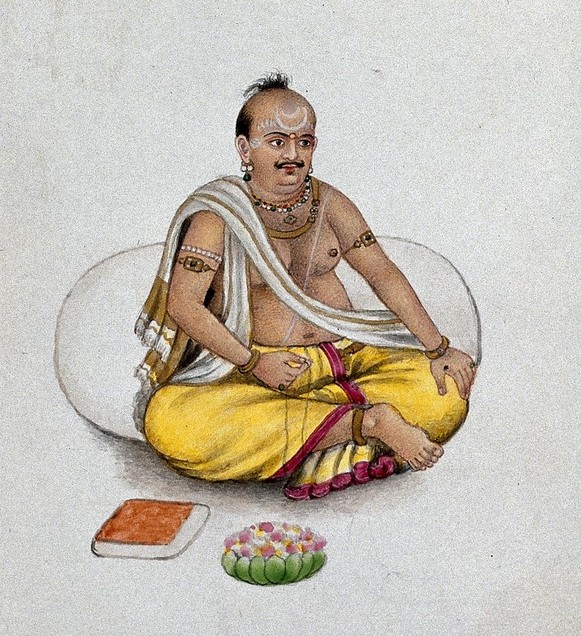
The messengers of the Lord replied, “The Lord has observed both of you and noted your actions and consciousness. The prostitute spent her life feeling, ‘I am such a sinful person. In order to survive I spend all day long engaged in the most abominable activities. If only I could be like that pure-hearted brahmana across the road. How wonderful it must be to live like him. He spends all his time performing Vedic rituals, chanting sacred mantras and reading Bhagavad-gita. If only I could be like him.’”

“On the other hand,” they told the brahmana, “You spent all day long looking across the street at the prostitute, wondering what she was up to, and thinking, ‘This woman is so low and degraded – what is she up to now? Who is that going to visit her? What a low and sinful person.’ So, the Lord determined that she was humble, free from envy and fault-finding and desired to be engaged in spiritual life, whereas you were envious and obsessed with her activities, and always criticizing her and meditating upon her faults. Therefore, you have many changes to go through before you are ready to return to the spiritual world.”
The Mercy of Srila Bhaktisiddhanta Sarasvati
There is a wonderful story showing the kindness, tolerance and mercy of Srila Bhaktisiddhanta Sarasvati Thakur. This took place in Bengal in the 1930’s:
Once some devotees were sent to establish a preaching center in Bengal. They worked day and night, equipping it as a beautiful temple. When Srila Bhaktisiddhanta Sarasvati Prabhupada arrived to install the Deities, he was very pleased and asked about one brahmacari who had worked hard on the preparations. The disciples told him, “Master, he became entangled with a lady. We rebuked him so much for his behavior that he fled from this place.”
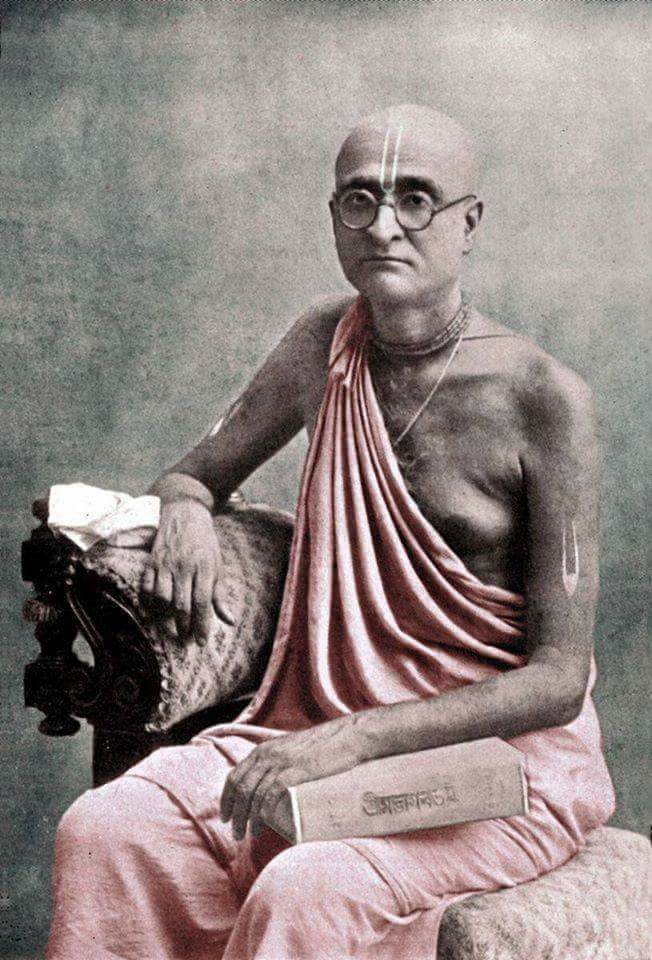
Srila Bhaktisiddhanta Sarasvati Thakur replied, “I don’t want to establish a preaching center here, nor do I want to install the Deities. In this world we spend hundreds of gallons of blood to bring a person out of the clutches of maya. If that person makes some mistake, it will be washed away by his serving Hari, Guru, and Vaisnavas, but you have chastised him and he has gone away. I don’t want to make a center here. Search for him and bring him to me; otherwise I will go away.”
The anxious disciples began to search for that brahmacari. Madhava Maharaja, who at that time was named Hayagriva Brahmacari, found the errant brahmacari, apologised, and asked him to return. The brahmacari wept, saying, “I was serving here, in a watch company, but I was not really happy. I wanted to return, but I was thinking, ‘How can I show my face?’ So I did not return.” He at once went running and weeping to Srila Bhaktisiddhanta Sarasvati Prabhupada, thinking him more merciful than Krishna Himself, and all his *anarthas were washed away in a moment.
[*anarthas: things which are undesirable for bhakti]
Srila Bhaktisiddhanta Sarasvati Thakur told his disciples:
The purport is that we should not criticise anyone, whether a devotee or a worldly person.
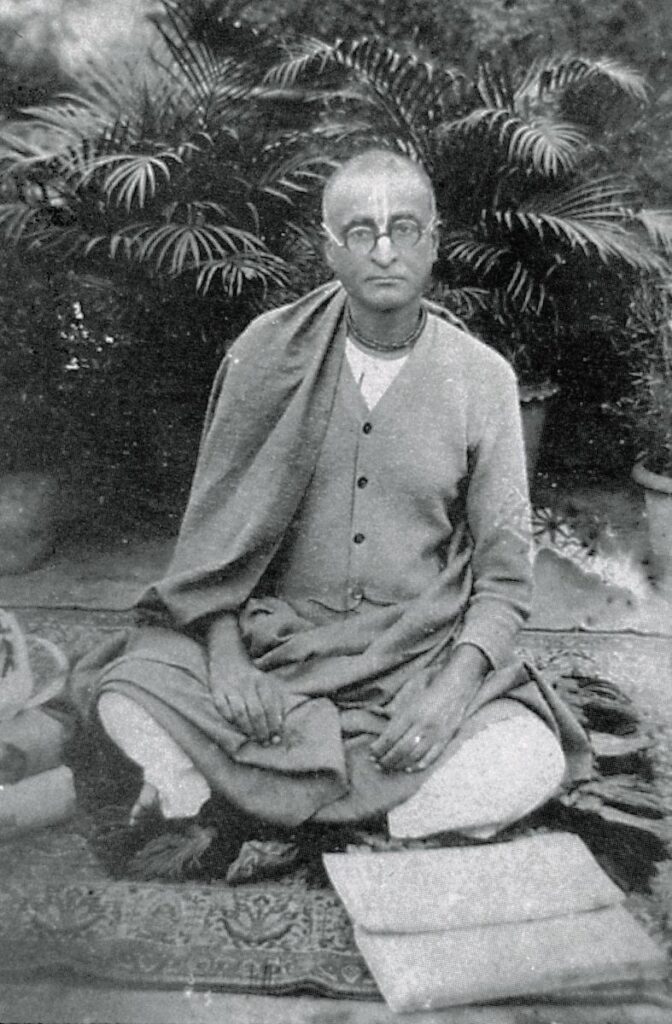
Then he quoted a verse from Srimad Bhagavatam:
The Supreme Personality of Godhead said, “One should neither praise nor criticise the conditioned nature and activities of other persons. Rather, one should see this world as simply the combination of material nature and the enjoying souls, all based on the Absolute Truth. Whoever indulges in praising or criticising the qualities and behaviour of others will quickly become deviated from his own best interest by his entanglement in illusory dualities.
[Srimad-Bhagavatam 11:28:1-2]
Srila Bhaktisiddhanta Sarasvati Thakur continued:
To bring a person from the clutches of maya is very, very hard. If lust or any other attachment is present in that person’s heart it will go away very soon, if he is chanting and remembering and listening to hari-katha. Be very careful. Don’t criticise devotees or non-devotees. First look at your own condition, and try to purify yourself. Is there any lust in you? Is there any kutinati (deceit) in you, or not? Be worried about that; don’t worry about others. Sri Guru and Lord Sri Krishna are responsible for others. You cannot do anything to help them, therefore you have no right to criticise.
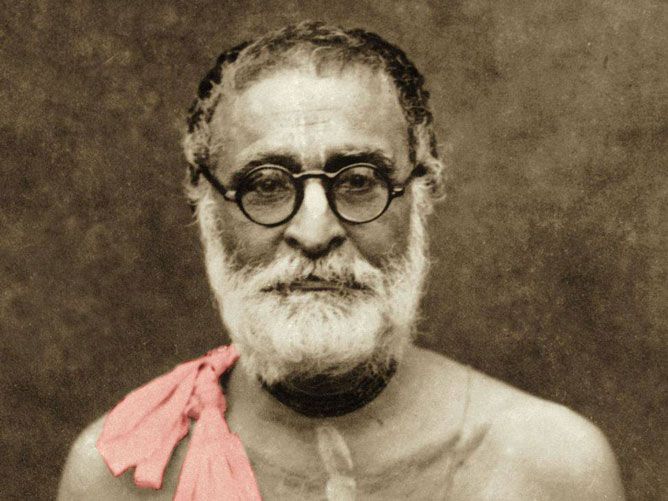
Srila Bhaktisiddhanta Sarasvati has further said:
When faults in others misguide and delude you, have patience, introspect, and find faults in yourself. Know that others cannot harm you unless you harm yourself.


Comment
Thank you …